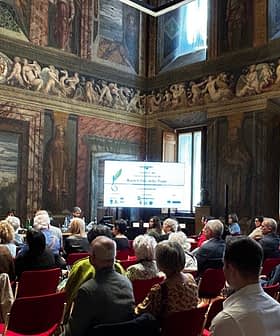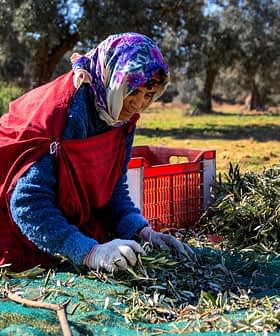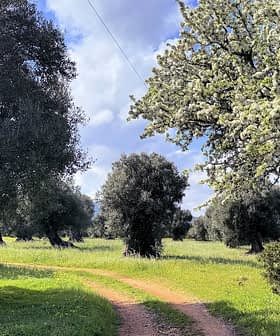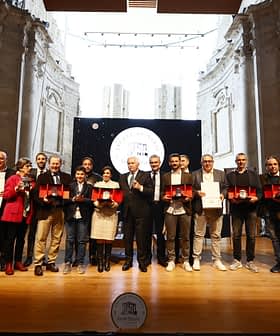History and Innovation Guide an Award-Winning Producer in Umbria
Through a fusion of historical influences and sustainable practices, Castello Monte Vibiano has achieved outstanding quality goals while preserving the local environment.
 Castello Monte Vibiano Vecchio
Castello Monte Vibiano VecchioA sense of wonderment encroaches upon visitors to the Castello Monte Vibiano Vecchio, located in the heart of the central Italian region of Umbria.
An ancient castle dating back to the 1st century BC seamlessly coexists with a state-of-the-art olive oil mill among the green hills and valleys.
The beauty of being a high-quality extra virgin olive oil producer is that you are always looking for something new that allows you to improve.
Lorenzo Fasola Bologna, co-owner of the estate, described how history and modernity have transformed Castello Monte Vibiano Vecchio into one of the world’s best extra virgin olive oil producers.
The journey started with Fasola Bologna’s father, Andrea, and has since been carried out by himself and his sister, Maria Camilla.
See Also:Producer ProfilesThe brand’s meteoric rise has paired an effective business strategy with a real vision of sustainable development, connecting the family’s historical roots to the future.
The far-reaching project began to take shape more than 50 years ago by planting roughly 10,000 high-trunk trees to surround the olive groves and the vineyards.
In addition to the implementation of forest resources, with their contribution in terms of carbon dioxide absorption, over the years, the family has applied low-impact energy technologies, introduced electric vehicles, and started to re-use agricultural by-products.
Thanks to a constant updating of the production techniques and fruitful collaboration with research centers, Castello Monte Vibiano Vecchio became the first company to obtain the ‘Zero CO2 Emissions’ certification (DNV UNI ISO 14064) provided by a leading classification body.
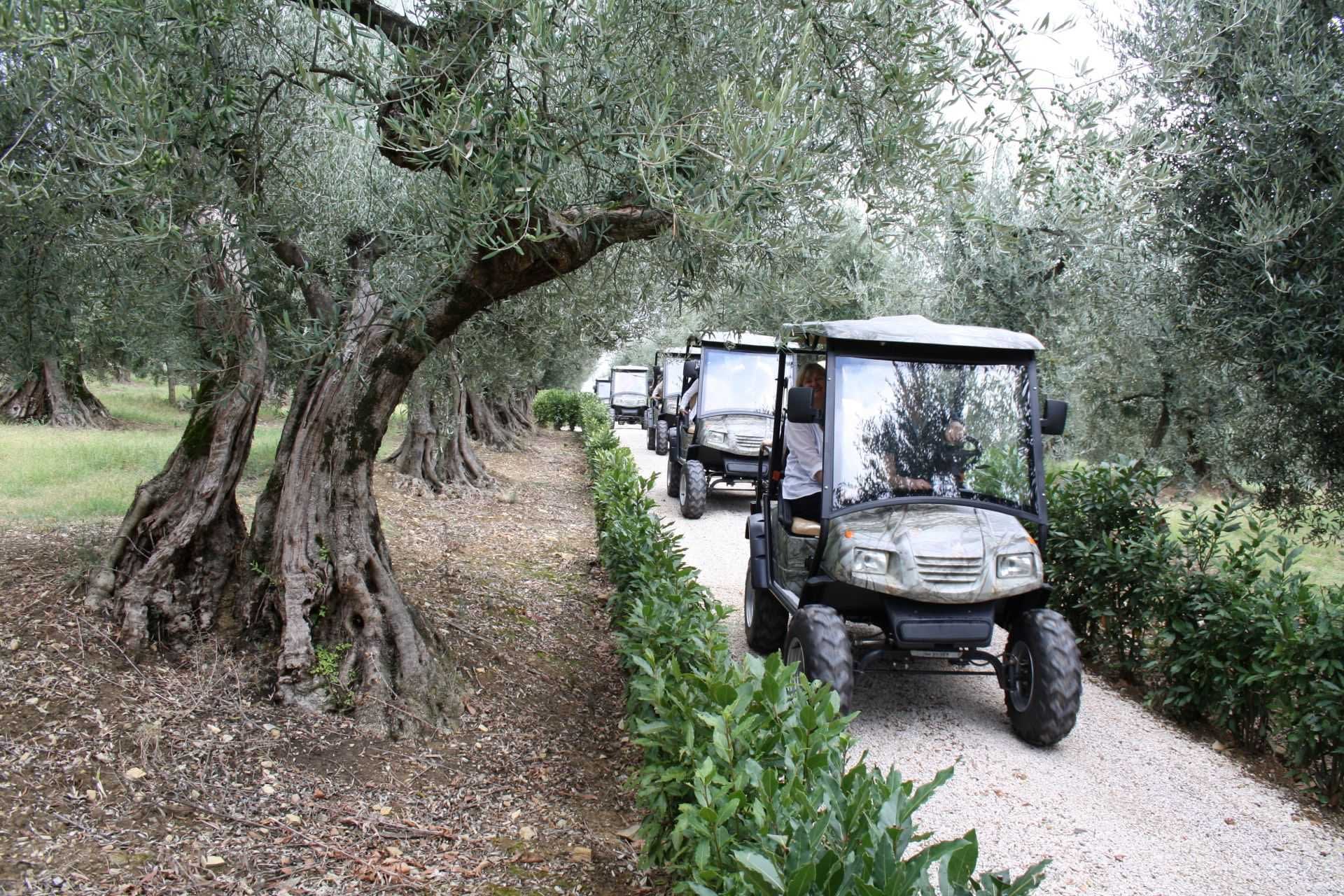
Castello Monte Vibiano Vecchio
“We have always believed that the real quality can only come from a healthy environment,” Fasola Bologna told Olive Oil Times. “Yet, since we have the privilege of living in a land that is beautiful and perfect just as it is, our mission is not to improve it, but rather to value and preserve it.”
The passionate commitment of the family to safeguard the territory has naturally evolved into a steadfast dedication to quality. As a result, the Umbrian farm boasts a series of successes at the NYIOOC World Olive Oil Competition, including four Gold Awards earned during the last edition.
“We are very satisfied with the recognition for our flagship product, Borgiona,” Fasola Bologna said. “I believe that this extra virgin olive oil, with its distinctive features, is looking to the future. Also, we are pleased that the NYIOOC reconfirmed the quality of Vubia.”
The blend, which incorporates typical varieties of the region – Dolce Agogia, Moraiolo, Frantoio and Leccino – combined in varying percentages, takes its name from the Etruscans’ word to call the people of the village.
Later, when history and legend mix, Vubia becomes the female protagonist of a tale from the third century BC. During the Second Punic War between Rome and Hannibal’s Carthaginians, her 20-year-old sons were sent to the front.
We have always believed that the real quality can only come from a healthy environment.
As time went by, she became increasingly alarmed by news from the battlefield and began praying to Bacchus for their safe return. When she eventually saw them coming back uninjured, downhill from Mount Vibiano, she decided to plant a vineyard as an offering of gratitude to the god.
The sacred plot, now called Vigna Lorenzo, is overlooked by an ancient olive grove. There you will find several autochthonous varieties – including Moraiolo, Frantoio, Dolce Agogia, Borgiona, San Felice, Rosciola di Panicale, Rosciola Umbra, Limona, Pocciolo, Nostrale di Rigali and Capolga Umbra – some of which are blended in Tremilaolive Centuries-Old Trees.
The evocative power of the story of love and gratefulness expressed by the legendary Vubia endows these ancient fields with a special atmosphere. In 2018, the orchard was chosen as the venue for an impressive event to celebrate the night harvest.
“We have come up with the Harvest by Night extra virgin olive oil to send the message that climate change is real,” Fasola Bologna said. “It is happening right now, and we cannot afford to lose time.”
“We must act, starting from sustainably producing food,” he added. “At this rate, in fact, and if we do not take action, traditional harvesting will become increasingly difficult due to the rise in temperatures.”
An internationally renowned artist, Felice Limosani, created two site-specific art installations at the launch event – an immersive play of lights and sounds lit up the evening in the ancient olive grove and at the castle.
See Also:Best Olive Oils From ItalyThe guests were encouraged to take off their elegant and high-heel shoes and wear rubber boots so that they could help the harvesters pick olives and fill up the bins, which were immediately delivered to the mill.
“Receiving recognition for this product had a strong symbolic value,” Fasola Bologna said. “It means we are heading in the right direction, even with our boldest choices. Today, night operations are limited to a small part of the production, but who knows whether, in the future, this practice can become more widespread.”
The last olive harvest was characterized by normal average temperatures with cool days in early October, Fasola Bologna added.
“But we know that every year, we must be ready to cope with different weather issues as global warming starts being a problem,” he said. “We saw this with the last grape-harvesting season, which was concluded much earlier than the previous years. The olive harvest at night was a challenge, a call on everyone to act and tackle climate change.”
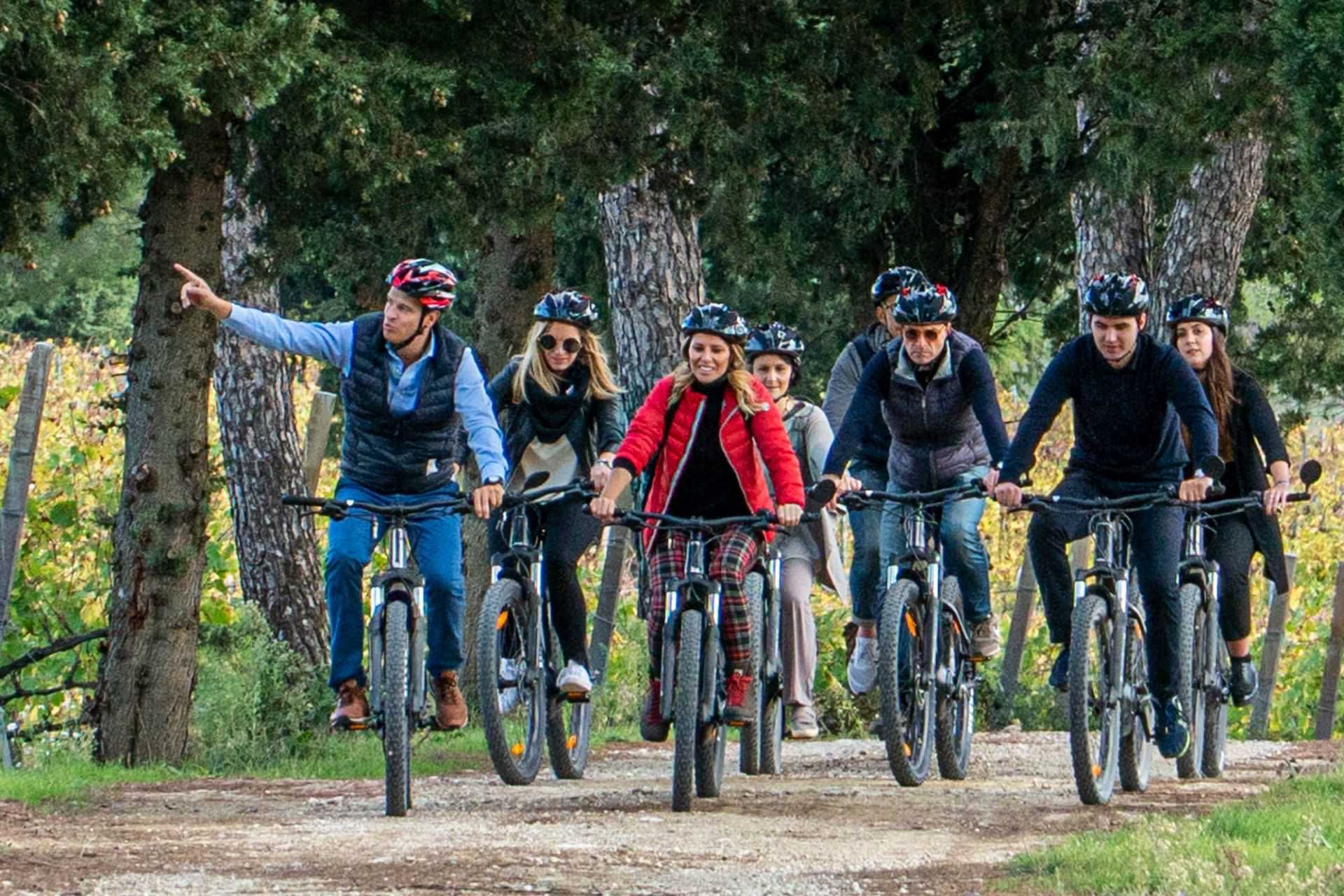
Castello Monte Vibiano Vecchio
All company choices aim to reach this goal, and everyone is involved. For this purpose, 30 electric bikes are available for visitors of the farm to use, allowing them to explore the estate and 55-hectare olive grove.
Yet, the idea is to expand the land dedicated to the production of extra virgin olive oil.
“We are planning to plant more olive trees,” Fasola Bologna said, pointing out that the company can also rely on its state-of-the-art mill.
“It is equipped with both horizontal and vertical malaxers. We analyze the fruits and, according to specific parameters, we decide whether to work with the three-phase or the two-phase technology,” he said. “However, we continuously test and experiment, and over the years, this allowed us to obtain more data on the olives and to understand how to get the best from the different varieties.”
“We are always looking for new things,” Fasola Bologna added, showing how the unfailing flair for research and experimentation is a constant at Castello Monte Vibiano Vecchio.
“But, above all, we try to improve and surpass ourselves. Perfection does not exist, and I believe that in the olive oil sector, we can still make significant progress, especially with regards to milling technologies,” he concluded. “The beauty of being a high-quality extra virgin olive oil producer is that you are always looking for something new, that something extra that allows you to improve and make a real difference.”



